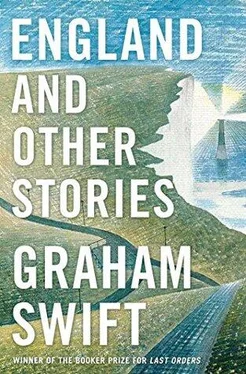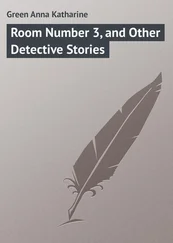As if to share the mood, the sun broke through a gap in the clouds and made the surface of the driveway gleam. To one side of the church, the big cedar, stirred by the breeze and with a sudden sparkle, shrugged off its burden of drops.
The news about Clive Davenport — felled by a heart attack only three years after retiring — had circulated quickly, along with tributes to the fact that he’d been head of Holmgate almost since it had opened. This accounted for the impressive gathering, which in turn had reassured many members of it who’d been uncertain about coming in the first place. Several generations of former staff and pupils were involved. Some present had few fond memories of Holmgate and had even once wished old Daffy dead, but the passage of time and the needs of the occasion had instilled an infectious makeshift nostalgia. Perhaps Daffy hadn’t been such a bad headmaster. Perhaps life itself at Holmgate hadn’t been so bad. Life after Holmgate hadn’t always been so great.
Many had turned up simply to see who else would be there and how they were looking now. It was a way of satisfying that curiosity without having to sign up to any grim ‘reunion’. But undoubtedly another motive for attending was having nothing better to do on a Thursday afternoon. It was unemployment.
St Luke’s, a big stone barn of a place, stood on a hillside, within a railed enclosure large enough to feel like a small public park. Below, a good portion of the town was visible, its rooftops wetly glinting. You could even make out, appropriately enough, the playing fields at Holmgate.
‘Has she seen us?’ Andy said. ‘Has she recognised us?’
‘Doesn’t look like it,’ Sean said. ‘Not yet.’
Though in fact, inside the church, when he’d craned his head round, Sean had received a definite look of recognition, though it hadn’t come from the woman (woman was now the word) Andy was speaking of. For a fraction of a second he’d wondered who it had come from.
‘Well, shall we say hello?’ Andy said, taking a drag. He had the stance he’d many times adopted, pint glass in hand, in bars on Friday nights. When Andy said ‘right little whore’ he didn’t necessarily mean it as a term of abuse or of rejection.
‘If you want,’ Sean said, but made no move.
Andy had the bravado, Sean had the actual command, it was how it had always been. But — despite the description just given her — their record with Karen Shield at Holmgate was much the same. Neither had got very far.
Andy said, ‘Christ, is that her mother? Talking of whores.’
Sean said softly, ‘Andy!’ It was almost, strangely, a rebuke, as if he might have added, ‘You’re in church.’ Except they weren’t any more. And he could see Andy’s point.
They were both dressed in cheap suits — their ‘interview suits’. Many around them were similarly dressed, but there were also definite outbreaks, especially among the women, of something showy, even provocative. It was as if many of the former pupils of Mr Davenport, in wishing to pay their respects, wanted also to demonstrate that they weren’t at school any more, they hadn’t turned into obedient little adults. Or else they wanted to prove to their peers, not seen for years, that they were still alive and kicking, they hadn’t turned drab and sad.
Misery and grief had anyway driven off in the two family cars behind the hearse.
The group of four, less than thirty yards away, that Sean and Andy were eyeing consisted of Karen, her mother (it was her mother), her father and some chattering friend, of the parents’ age, who’d intercepted them and was preventing them looking round, back towards the church. Sean was rather glad of this.
Karen wore nothing that wasn’t in theory appropriate — it couldn’t be faulted on its colour — but what she was actually got up in was a pair of black ankle boots, dark tights, with a seam up the back, a tight shiny-black waist-length jacket, a black nonsense of a hat with some black gauze attached to it, and a short flouncy charcoal skirt with which the wind was now playing mischievously.
The extraordinary thing was that the mother was wearing an outfit that was almost identical — the boots, the seamed tights, the short skirt and flimsy headpiece. Her top was a little different, but if anything more tarty.
It was hard not to conclude that they’d conspired over it, even gone shopping together. If not, who had started the competition, who had copied whom? There might have been something fetching about it, if it had worked. But the big difference between them was that while the daughter got away with it — it was fancy dress, but she had the looks anyway — the mother, the other side of forty, was a sight. The daughter’s hair was dark and glossy, the wind toying pleasingly with it too. The mother’s hair was a brownish frizz, the face rounded, puffy and fairly smothered in make-up.
Strangely, neither woman at this moment seemed aware of the effect. They were both laughing at something the fourth person was saying. They now and then with exactly the same action curled their knuckles cutely round the hems of their skirts. They might have been two happy perky twin sisters.
The father was something else altogether. Beside the two women, he was an unredeemed scruff. No tie, not even a white shirt. His excuse might have been a blunt, ‘I don’t dress up for funerals.’ Or, on this occasion, ‘He wasn’t my headmaster.’ But his face, never mind the clothes, was a mess. It was podgy and red, the sun struck it harshly.
But he too was now laughing, as if experiencing some rush of joy or of cocky pride in his womenfolk. It was the face — both Sean and Andy could spot this even at a distance — of a man who’d been drunk when he arrived and who did his best to be drunk as often as he could.
‘She looks a right old baggage,’ Andy said.
Sean didn’t answer this at first. Then he chose to agree. ‘You can say that again.’
‘And is that her dad?’
‘I suppose so.’
‘He looks shit-faced.’
In any case the main attraction was Karen. Sean looked at her without voicing any opinion. Tart’s clothes or not, the only right word was lovely. She’d been lovely at Holmgate too, in the last couple of years, though ‘lovely’ wasn’t in the vocabulary then. It wasn’t in the vocabulary now, not with Andy Sykes around, but it was the right word.
And he was wishing Karen had worn something plainer — to curb her mum. He was also wishing that fourth person would stay there with them, so he and Andy (though Andy was clearly getting other ideas) could just slip away. They’d decided to turn up, for whatever mad reason. For a laugh? To do their duty by Daffy? What had he done for them? They’d come anyway, and now they could just clear off.
He’d tried it on, of course, with Karen at Holmgate. He wasn’t the only one. How many had succeeded? Depending, of course, on what was meant by success. But he wasn’t the only one to try. It seemed an age ago now, being fifteen or sixteen. It hadn’t helped that he hadn’t lost it yet, or not in the true sense, the big V. He didn’t know if she had, for all the tease. The more she teased, in fact, the more he thought she hadn’t. Then he’d think what would be better, for his chances? If she had, but he hadn’t? If he had (theoretically), but she hadn’t? If they both had? If they both hadn’t?
He remembered it now, standing outside St Luke’s, all those possibilities running through his head. Had old Daffy been aware of it all — all going on like a sizzling pan under his nose?
One day he’d gone to Karen Shield’s house in Derwent Road, carrying the school bag she’d left on the bus. It wasn’t until he’d got up to get off himself, two stops later, that he’d noticed the bag lying on the seat up ahead. Otherwise, when she’d brushed past him (and she liked to brush) with Cheryl Hudson and Amina Khan he’d have grabbed her wrist and when she tugged back, said, ‘You’ve forgotten something.’
Читать дальше












